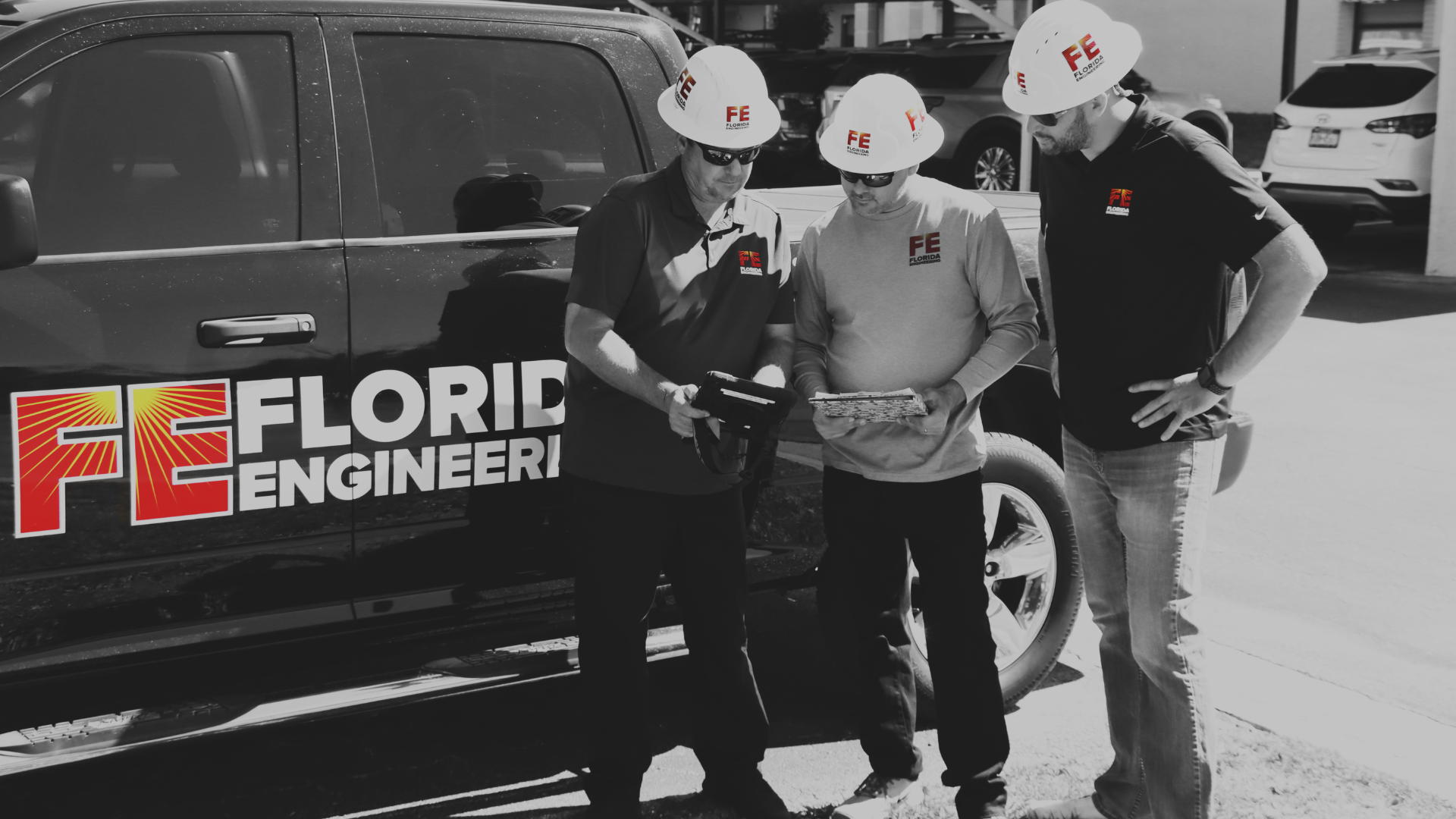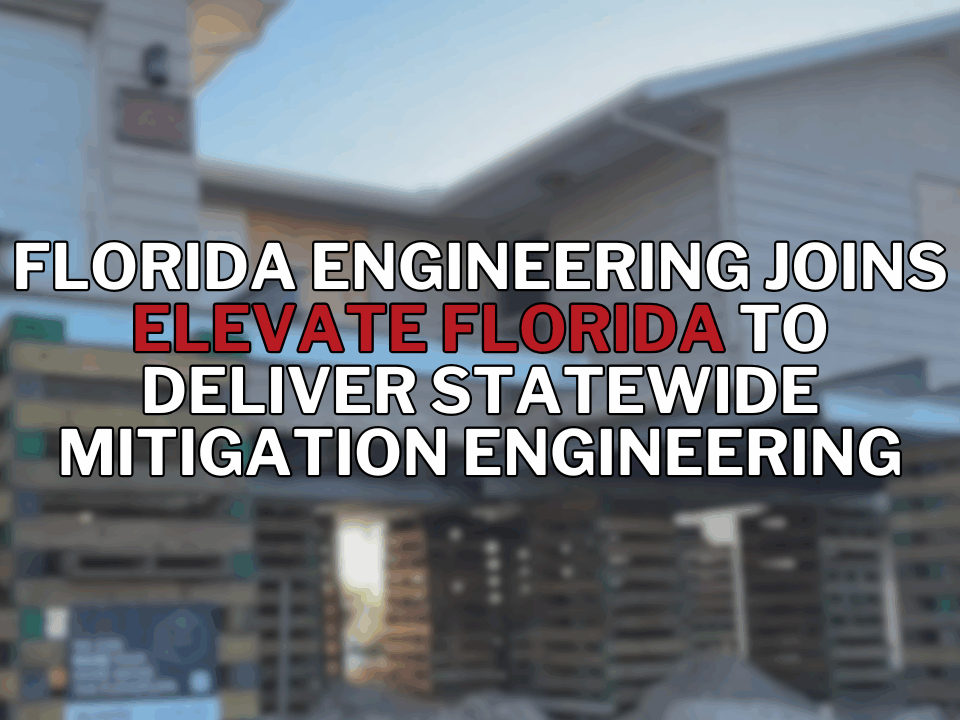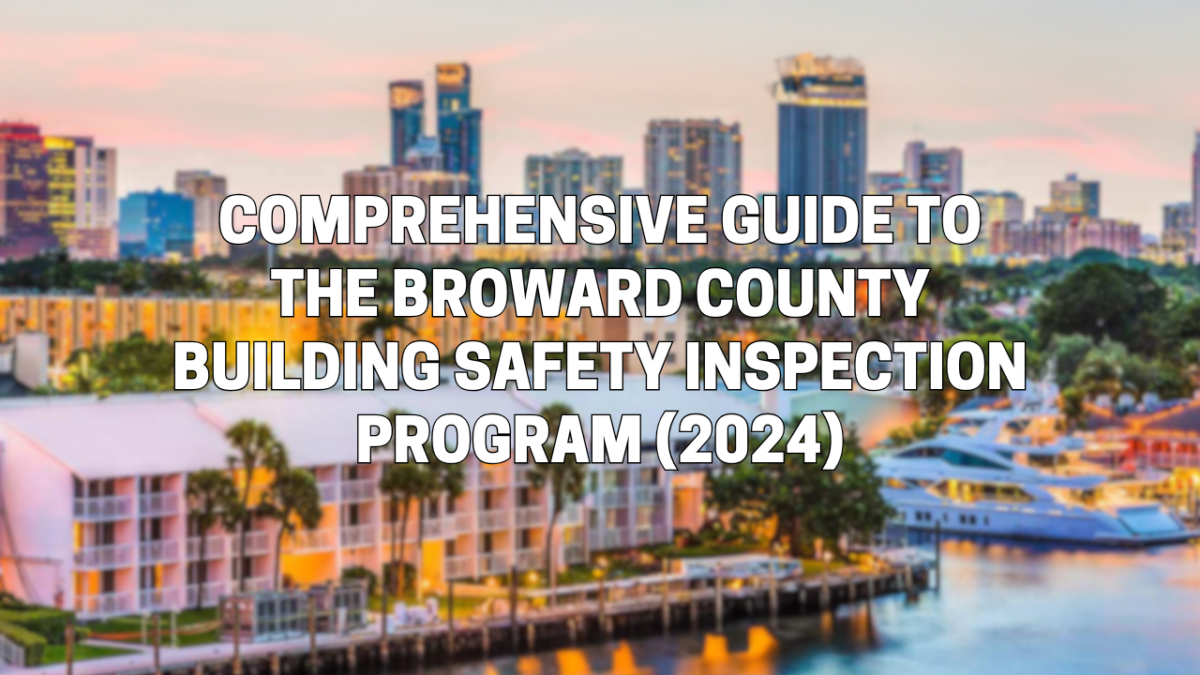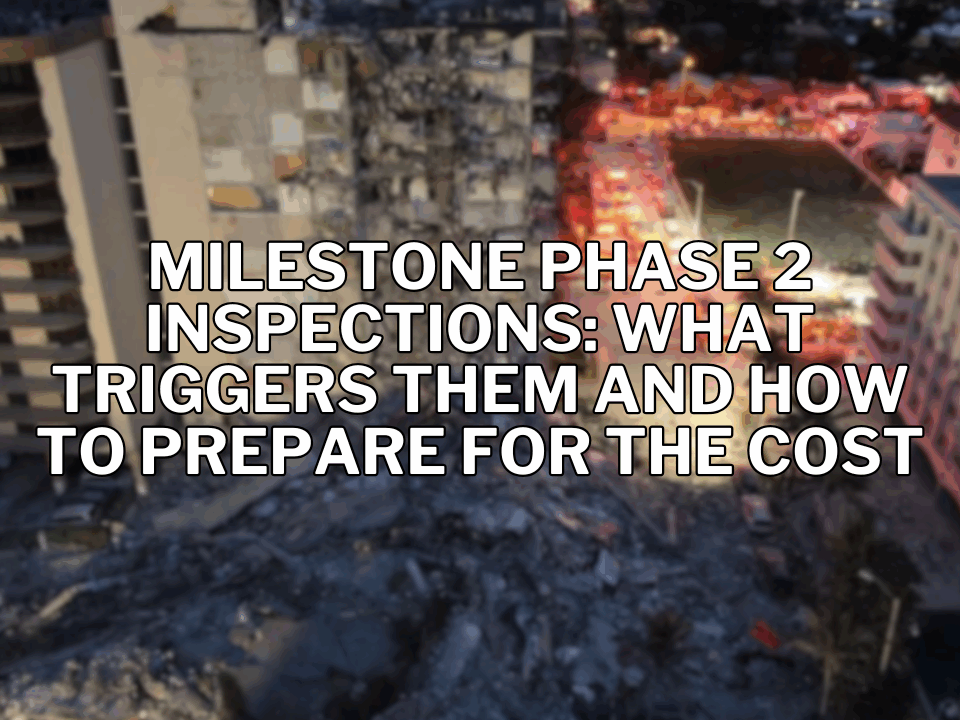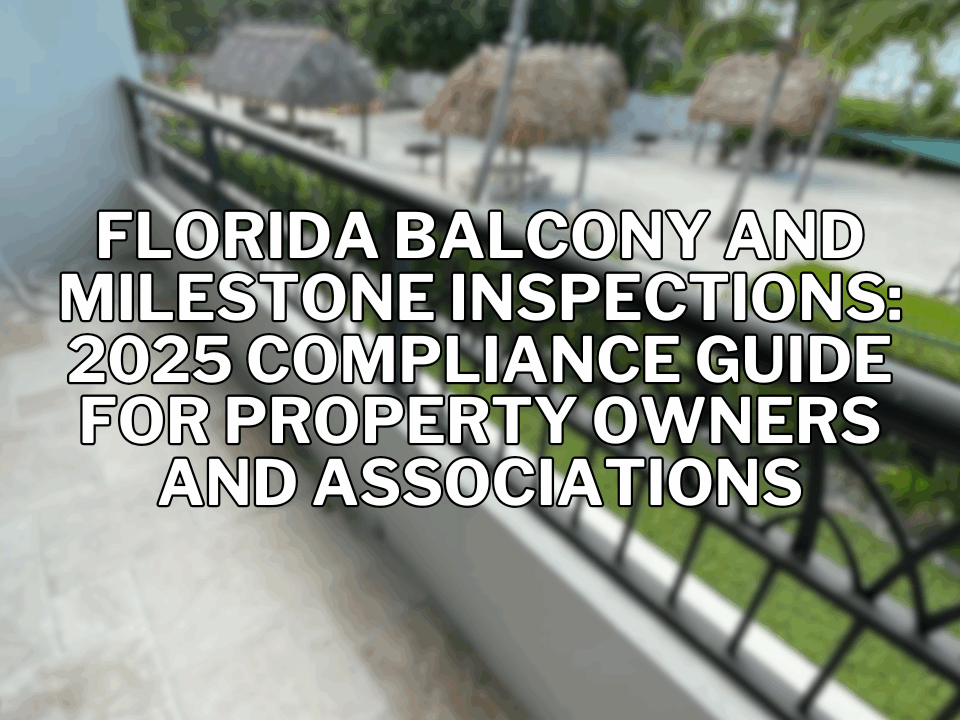Building safety is a critical concern, especially in regions prone to environmental hazards. Broward County’s Building Safety Inspection Program (BSIP) is designed to ensure the structural and electrical safety of buildings after they reach a certain age, preventing potential disasters due to aging infrastructure. This article offers an in-depth look into the program’s structure, purpose, and procedures.
Table of Contents
- Overview of the Building Safety Inspection Program
- Key Definitions Under the Program
- Inspection Scope and Schedule
- Building Exemptions
- Safety Inspection Reporting Requirements
- Duties of Building Owners and Inspectors
- Frequently Asked Questions (FAQs)
1. Overview of the Building Safety Inspection Program
The Building Safety Inspection Program was established by the Broward County Board of Rules and Appeals (BORA) to enforce the structural and electrical integrity of older buildings. This program mandates periodic inspections for structures that are 25 years or older to identify potential issues and prescribe necessary repairs. The goal is to prevent tragedies by identifying and addressing structural deterioration before it becomes a life-threatening concern.
Key Objectives of the Program:
- Verify that buildings are structurally and electrically sound.
- Ensure life safety standards are maintained for continued occupancy.
- Provide a framework for corrective action when safety concerns are identified.
The program is not meant to retroactively enforce current building codes but to maintain the original structural and safety integrity of buildings through regular inspections and maintenance.
2. Key Definitions Under the Program
Several terms are crucial for understanding the BSIP’s requirements:
- Threshold Building: Any building that is either more than three stories tall, exceeds 50 feet in height, or accommodates more than 500 occupants.
- Substantial Structural Deterioration: Structural distress that could affect a building’s safety, excluding surface-level imperfections unless determined otherwise by a licensed professional.
- Florida Licensed Professional: An architect or engineer licensed to practice in the state of Florida, responsible for conducting the required inspections.
- Milestone Inspections: Certain buildings must also perform “milestone inspections,” which are combined with the BSIP to satisfy compliance under Florida State law.
3. Inspection Scope and Schedule
The inspection process is broken down into two phases:
Phase One – Structural and Electrical Inspection

This phase involves a visual inspection of the entire building’s structural and electrical systems by a Florida Licensed Professional. If no significant issues are found, the building passes the inspection. However, if potential problems are detected, the inspector recommends further detailed assessments, leading to Phase Two.
Phase Two – In-depth Analysis
When substantial structural deterioration or electrical deficiencies are identified, a more detailed inspection involving testing and analysis is required. This phase often leads to mandated repairs.
The inspection schedule follows these key timelines:
- June: Building data is collected from the Property Appraisers Office and forwarded to the local municipalities.
- June – August: Local building officials notify property owners of buildings that require inspection.
- September – November: Property owners submit inspection reports.
- December – May: Owners of buildings with required repairs must complete the work within this timeframe.
Subsequent Inspections are required every 10 years after the initial inspection.
4. Building Exemptions
Not all buildings are subject to the BSIP. Certain structures are exempt, including:
- U.S. Government and State of Florida buildings.
- Buildings on Indian reservations.
- Public school buildings.
- One- and two-family dwellings.
- Minor Structures: Buildings with a floor area of less than 3,500 square feet.
These exemptions allow the county to focus resources on larger, more complex structures that pose higher risks if they are not regularly inspected.
5. Safety Inspection Reporting Requirements
Property owners are required to submit comprehensive inspection reports detailing the structural and electrical condition of their buildings. These reports must meet the following criteria:
- Seal and Signature: The report must bear the licensed inspector’s seal and signature.
- Detailed Narrative: A written report outlining the inspection procedures, observations, and conclusions.
- Photos: Color photographs of the building, especially where deficiencies or damages are observed.
- Repair Recommendations: If issues are found, the report should specify the necessary repairs and whether the building can continue to be safely occupied during the repair period.
- Timeline: Owners have 180 days to complete any required repairs unless a longer timeline is approved by the Building Official.
For condominiums or cooperative buildings, inspection summaries must be distributed to all unit owners.
6. Duties of Building Owners and Inspectors
Both property owners and inspectors have significant responsibilities under the BSIP:
- Building Owners: Must ensure that inspections are completed within the prescribed timeframe. They are also responsible for the cost of inspections and any necessary repairs.
- Inspectors: Licensed professionals conducting the inspections must follow the procedural guidelines set by BORA and ensure that their findings are accurate and thorough. They are also required to report any life-threatening conditions immediately to both the owner and the Building Official.
Inspectors must complete their evaluation within 90 days of receiving the notice of inspection and submit the final report promptly.
7. Frequently Asked Questions (FAQs)
Q1: What happens if a building owner fails to comply with the inspection schedule?
If a building owner does not comply with the inspection schedule, the building may be deemed unsafe, leading to enforcement actions by the county, including possible fines or an unsafe structure designation.
Q2: What repairs are typically required after an inspection?
Common repairs following inspections include addressing structural deterioration, repairing cracked walls, ensuring electrical safety, and fixing any water damage that may compromise the building’s integrity.
Q3: Can a building remain occupied during repairs?
Yes, but only if a licensed professional determines that the building is safe for occupancy while repairs are ongoing. The professional must provide a letter stating the conditions under which the building can remain occupied.
Q4: How can I find out if my building is due for inspection?
Each June, the Broward County Board of Rules and Appeals provides local jurisdictions with a list of buildings due for inspection. Property owners are notified by certified mail, but it is also recommended to check with local building officials.
Conclusion
The Building Safety Inspection Program is a vital safety measure aimed at preventing the catastrophic failure of aging buildings in Broward County. With detailed inspection procedures and strict compliance timelines, the program helps ensure that structures remain safe for occupants while maintaining the overall integrity of the county’s infrastructure. Building owners and licensed professionals play key roles in safeguarding these structures, making regular inspections an essential part of building maintenance in South Florida.
For more detailed guidelines, property owners should consult the full BSIP document or reach out to their local building officials.
Need help? Contact Florida Engineering LLC to guide you through the process. Our team of experts can help you navigate your specific obligations and prepare for your building inspections with confidence. Don’t wait—start preparing today!
Contact Us – The Milestone Experts Near Me – Florida’s Condominium Inspections
- Phone: 941-391-5980
- Email: contact@fleng.com
- Address: 4161 Tamiami Trail, Suite 101, Port Charlotte, FL 33952
Connect With Us
Related Services
- Milestone Inspections
- Energy Calculation Services
- 25,30,40,50,60 Year Recertifications
- Pool Engineering Services
- Turnover Inspections
[This above text is for information purposes only and does not constitute engineering or legal advice. Please consult a professional engineer and licensed attorney for any specific answers to your questions about Milestone Inspections and the legal obligations milestone inspections entail.]

